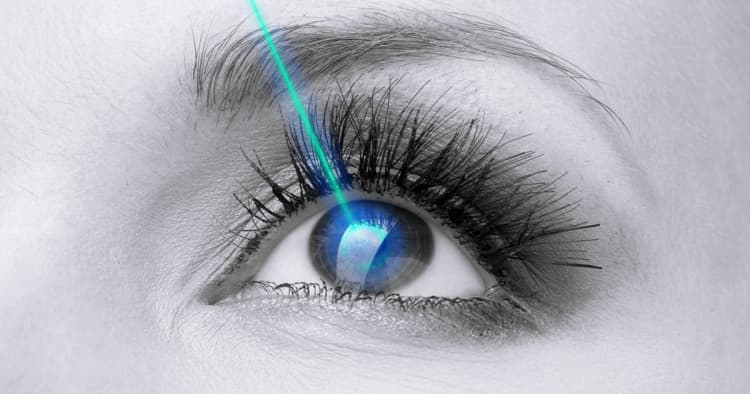Hi Annette
When everyone gets above 40 years of age, we get something called 'presbyopia' (or Lao Hua/老花 in Chinese). I think you probably mean that you have myopia, astigmatism and presbyopia.
Presbyopia is the gradual loss of autofocusing power of the eye. As you lose this ability, things are only clear/in focus at one particular distance at any one time.
Say you wear glasses/contact lenses to look in the distance-then distance vision is sharp but near is not. If you take your glasses/contact lenses off, then near is sharper (depending on how much astigmatism you have) but distance is no longer sharp.
The effect of having LASIK surgery is like having contact lenses on all the time.
Therefore, if you have LASIK above 40 years of age, you will have to consider options to help with focusing at different distances. 46 is not 'too old' for LASIK, neither is 50, or 55, for that matter. People of this age who have LASIK done can minimize wearing glasses, but glasses will likely be needed some of the time depending on their visual needs because of the problem of presbyopia.
When people have LASIK at say, 25 years of age, everything, far and near will be sharp after LASIK. But when they get to 40 years of age and above, presbyopia will still appear.
People with myopia and astigmatism, who are above 40 years of age, have a few options to deal with the focusing problems.
- Progressive/bifocal spectacle lenses
- Separate distance and near glasses
- Wear contact lenses for distance vision and reading glasses over the contact lenses for near vision
- Monovision contact lenses (one side corrected for far vision and the other for near vision)
- (Multifocal contact lenses)-the effect is somewhat less predictable and less effective than above
If you are considering LASIK and are above the age of 40, you should explore the option of monovision (like monovision contact lenses), since this compromise will give fairly good far and near vision and minimise the need to wear glasses.
So, when do we say it truly is not worthwhile to have LASIK any more?
That would be when you are nearing the age when many people start to get cataracts. Since cataract surgery can also correct refractive errors, and cataracts will blur vision despite LASIK, it would not be worthwhile to get LASIK done and then need cataract surgery done as well relatively soon after the LASIK.
Generally speaking, many people start to get some cataract in their 60s, in which case, LASIK would give less 'return on investment' beyond about 60. There is no official 'too old' for LASIK age, but this age of 60 may be a general rule of thumb.



